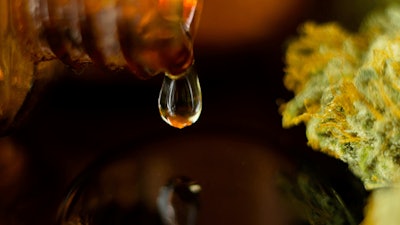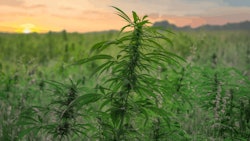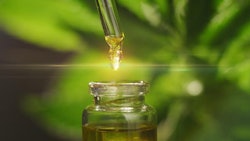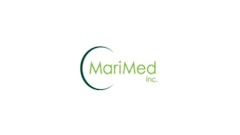
Delta-8 tetrahydrocannabinol (THC), patenting psychedelics and certificates of analysis: these are some of the hot topics North Carolina and Oregon-licensed attorney Rod Kight focuses on at his law practice.
Hemp Grower caught up with the Kight Law Office principal and founder to discuss delta-8 THC, the contentious yet lucrative psychoactive cannabinoid that is prompting companies to produce it and states to ban it. Since Hemp Grower published a piece April 23 on the first 12 states to implement bans on delta-8 THC, New York, Vermont and Washington have also banned it.
While Kight has outlined a legal theory that hemp-derived delta-8 THC is not a U.S. Schedule I substance, he says dealing with the cannabinoid is still risky, and the market is becoming saturated.

Patrick Williams: What are some of the main things you advise clients who operate in the delta-8 space about regarding this cannabinoid?
Rod Kight: So, I'll start by saying—it's a little bit of a sort of prelude to that—when delta-8 became a thing about a year ago, as we really started to get some calls about it, it was usually from companies that were focused on delta-8, like they were calling because they [produced] delta-8. And at the time, a lot of my more traditional hemp [and] CBD [cannabidiol] company clients were not interested in entering the delta-8 space. Now, just because of the fact that [the] CBD and hemp biomass … market is really down, but the delta-8 market is really up, a good chunk of my clients—even ones that were initially hesitant to get involved—are now involved in delta-8. It's become sort of just one more piece of the hemp puzzle in terms of the industry.
With that being said, … the first thing I say [when clients call] is that getting involved in the delta-8 market is the riskiest thing you can do in the entire cannabis industry right now. And by ‘cannabis,’ I mean that in the big umbrella terms of marijuana and hemp. The reason I say that is because on the one hand, marijuana is federally illegal. However, if you're in the regulated market, you are abiding by very specific state laws and regulations that are usually pretty clear. Also, there are some protections for medical marijuana states in terms of the feds interfering. With respect to the hemp market, hemp is obviously lawful; it's clearly defined. But delta-8 is this thing [that] gets people high, but it's hemp. There's a lot of controversy about it. It's really clear that law enforcement and regulators don't like it. Their position typically is that it's illegal ... so, that's why it kind of puts a target on your back if you're involved in the delta-8 industry.
PW: You talked in your blog posts about legal theory. Could you explain how that applies to this topic? Could a federal judge rule tomorrow that delta-8 derived from hemp CBD extract is a Schedule I substance, and we'd just have to live with it?
RK: Potentially, yeah—and not tomorrow because it takes time for cases to go through. But you're right. Theoretically, … someone in some capacity producing or selling or maybe even in possession of hemp-derived delta-8 THC could be charged with a crime. Then that would go to court, and they would argue the legal theory that [I’ve written about], and then the law enforcement, whether that’s DEA [U.S. Drug Enforcement Administration] or some state or local law enforcement would argue, no, this is an illegal form of THC, and a court could rule that, in fact, law enforcement was correct. And that's why we don't know. There have been zero cases ever decided on this issue. Now, that doesn't necessarily mean that suddenly delta-8 THC is illegal throughout the country. It depends. If there's some local judge in some small, Podunk county, that doesn't carry as much weight as, say, a federal court … determining that this is illegal at a high level. Also, that person could appeal. But to answer your question, yes, a judge could read this theory, hear the law enforcement's theory and then make a decision based on that as to what's right.
PW: Some states are banning delta-8, and Shane Pennington of Vicente Sederberg said that’s legal for them to do.
JK: Yeah, for the most part, states have a right to do that. The [federal legal status] is sort of a baseline. The problem is we don't know what the feds require here. What I argue in my theory is that the feds specifically made hemp lawful and within the definition of hemp are all cannabinoids, isomers, derivatives, extracts, so on and so forth, with a delta-9 THC level that's no more than 0.3%. So, it's absolutely and fundamentally clear that delta-8 that's extracted from a hemp plant is lawful.
The real question, and the reason I wrote this most recent article on synthetics, is: What about [the legality of] delta-8 that is produced from hemp-derived CBD? So, you hear a lot of chatter about how, ‘Oh, no, this is synthetic THC, and synthetic THC is illegal.’ Well, A, is this really synthetic THC? I think that that's actually an open question that's not answered by any court case. And B, even if it is synthetic, it's still legal because it meets the definition of hemp, just on its face with respect to the 2018 Farm Bill's definitions.
PW: Where did the idea that synthetic cannabinoids are Schedule I substances come from?
RK:. So, THC is listed in the Controlled Substances Act. If you look, it includes synthetic THC. And there are a couple reasons why that's there. First of all, there were some court cases about people who were busted with THC. And they argue, well, THC is already included within the definition of marijuana, so the THC in the Controlled Substances Act must only refer to synthetics. And the court said, 'No, no, no, no. It includes all THC.' And then vice versa, you heard people say, 'Well, THC is here, but that doesn't mean synthetic.' No, it's clear that it's all forms of THC, including synthetic forms.
The second piece is it really kind of rose to prominence back when you'd see ‘spice’ and all sorts of other truly manufactured-in-a-lab compounds that mimic the effects of THC. The molecules weren't structured anywhere at all similar to THC. But the effects they had in terms of binding to the CB receptors were similar and caused the high. So, that's how the issue really arose. It never contemplated naturally occurring compounds that could also be produced from other naturally occurring compounds. So, that's why we're kind of out in no man's land with respect to hemp-derived delta-8 THC.
PW: Do you have any thoughts on where we will see more clarity on the delta-8 subject? Will it be a judge or Congress, or do we just not know?
RK: I think that in hemp land, this is like one of the top issues. It's a thing that everyone wants to talk about. But when you sort of pull back your focus and look at the country in general and look at Congress and what its priorities are, I don't think that it's a big priority for Congress to come in and legislate specifically about delta-8. I would be very surprised if we saw anything from Congress regarding delta-8.
In terms of where we're going to see some movement, I think probably what we're going to see is more on a state-by-state basis. And this happened with CBD, in the early days of CBD. This happened, and continues to happen, to some degree, with smokable hemp. It's an issue that arises out of the farm bill where states are beginning to carve out what they believe to be true and correct. So, I think we're going to see a number of states come out—like Kentucky did, Colorado just has, Oregon probably will, Alabama I think is going to—that expressly prohibits it. But because the delta-8 market is so big, and because it really is supporting the hemp industry in a lot of ways right now, I think that eventually, you’re going to see some pushback, and you're going to see states that actually embrace it and say, ‘No, we are a delta-8 hemp-friendly state, and provided that you do whatever it takes, whether register or provide clean, safe products, blah, blah, blah, we're going to allow it in our state.’ Florida hasn't gone that far, but in one of its FAQs on its department of agriculture webpage, it discusses delta-8 in a positive way.
So, to answer your question, I think we're going to see this play out on a state-by-state regulatory basis with the preliminary push being against delta-8. But I think we're going to see some holdout states go the opposite way. And then, finally, we may see some law enforcement actions and some court cases that arise. But my guess is those will mostly be sort of local and isolated cases, versus some big, huge federal case that we see that has some national precedent.
PW: For hemp industry members who are in states where delta-8 hasn't been banned yet and they’re thinking about getting into the space, what would you tell them?
RK: I think I would tell them a few things. [The first] is, I start off every conversation with saying, ‘This is risky.’ And the risk is the fact that this is a contentious subject with legal positions on both sides and that there's been no court that's ruled on this. So, it is a risky business venture. But secondly, … I strongly contend that it's lawful based on the legal theories that I've outlined on my blog. And third—this is not [a] legal [issue]—but in terms of business, if you're just now getting into delta-8, you're getting into a crowded market. In addition to the legal issues that you need to consider, you need to consider general business principles. Are you essentially introducing one more energy drink into the overcrowded energy drink market? How are you going to distinguish yourself? I think those same principles apply because the delta-8 market right now is appearing to get saturated.
PW: Is there anything else on this subject that we haven't touched on, or anything else that you're finding or hearing about this, that you'd like to share?
RK: Yeah, I think so. I've really been pretty vocal about delta-8 from hemp as not being a controlled substance and have articulated these theories …. But one thing I want to be clear about to people that are reading this is that I think it's enormously important to—if you're going to produce delta-8 products—produce safe products that would otherwise comply with state and federal law in terms of consumer safety.
I think the most dangerous thing to the delta-8 sector of the industry is someone with a bad product that's got some toxins in it, either residual toxins from producing it or it's just blended with some bad oil or whatever the case may be, and someone gets hurt—not because of the delta-8, which is largely safe, but because it's a bad product. So, I would strongly encourage anyone that's getting involved to meet those high standards that would be required for any type of consumer product. We don't want to hurt anybody.
Editor’s Note: This interview has been edited for length and clarity.

























